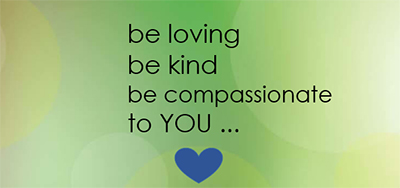A Call for Compassion
May 11, 2020

The word, ‘compassion’ literally means “suffering with another” something we’re keenly aware of in the midst of our global crisis. To be compassionate means not only being aware of another’s suffering but a desire to alleviate it.
We feel compassion for those on the front line, providing essential services. We feel for the elderly, who are particularly vulnerable and for their loved ones who aren’t able to be with them. We feel for those who have lost jobs and are at risk of losing so much more. This circle of compassion isn’t complete though without moving closer to home where compassion for our significant others, our children, and ourselves is more important now than ever. You, yes YOU, dear parent are deserving of and needing self-compassion. What does this mean exactly and what does it look like? For this, my Go To source is psychologist and fellow autism-mom, Kristin Neff (self-compassion.org). Here’s what she tells us:
• First it means being mindful that you are suffering. In your own words, name this. It could be: This is so hard. I’m hurting. I’m exhausted. I’m so sad.
• Next, be mindful of your shared humanity with others. In your own words, note that you are not alone in your suffering. It might sound like: Everyone is struggling right now. The world is so sad. My fellow parents are suffering too. This is hard on all of us.
• End with kindness. What do you need right now in this moment? It could be: May I be patient with myself. May I be gentle with myself. May I be forgiving with myself. May I be kind and non-judgmental with myself. May I believe that I need compassion too.
If there ever was a time to lower the expectations of everyone and shift into Good Enough Parenting mode, it is now. This is hugely unsettling for our kids whose lives are topsy-turvy. They crave and function best with routine and predictability and structure, all of which dramatically disappeared, and which parents are heroically trying to recreate. Please remind yourself that you are NOT your child’s educator, therapist, or para. You are being asked to perform these roles by proxy since those who are trained, skilled and are compensated to do so, are now not able to do so.
Schools are trying to meet requirements and expectations of many stakeholders and there is no playbook for this. Some parents have yet to hear from special-ed teachers and are only receiving the “one-size-fits-all” gen-ed school-work. If your child has an IEP, you might take a look and refresh your memory on what you and educators thought were priorities. Ask teachers what they suggest for you as a parent to work on towards the goal, given you are at home with competing demands. Remind them that the last thing you want to do is create new behavioral challenges! Our kids are highly environment-associated, meaning that they know they’ve always done these things at school with this person and now it’s mom, for Pete’s sake, asking me to do these things at home. What’s wrong with this picture?!
Perspective is a sense of understanding the relative importance of things. We have been told, and must keep first and foremost in our minds, that STAYING SAFE and KEEPING WELL are priority. If you worry about your child regressing socially or academically, remember that we are pretty good at retaining things and we ALL will have some catching up to do. I got in my car for the first time in two weeks and had to really focus on where I was going. Streets seemed oddly unfamiliar. It comes back to you though. Feeling safe to strike up a conversation in public will likely take some time for all of us.
Finding meaning in hardship is one way to alleviate the pain we feel. I’ve been asking clients a few questions to help with perspective and meaning including:
• What’s the hardest part of this? (Frequent reply: Wearing so many hats. Expectations of myself. The uncertainty. No school!)
• Anything turning out to be easier than expected? (I hear: Mornings are less rushed, less pressure on kids, I don’t miss all the driving to therapy appointments.)
• Any surprises? (Some say siblings are actually getting used to each other, bonding, dads are more involved than ever)
• Have you or has your child tried anything new during this time? (Some report new foods, new activities)
• What have you learned about yourself during this time? (Frequent answer: I now know the answer to “Could I homeschool my kid?”)
• If there’s one thing you need more of right now, what is it? (Patience, grace, to ask for help)
• If you could delegate one task to someone else right now, what would it be? (Whatever it is, delegate it. Ask for what you need!)
• What are 3 things that have moved to the bottom of your list and you realize it’s A-OK? (Keeping house tidy, getting everyone dressed every day are common answers)
Dear parents, you are perfectly imperfect human beings doing the best you can under very trying circumstances. In this moment, take a couple of deep breaths and call to mind your worth with this reminder: “I am deserving of and needing the same care and compassion I give to others.” Your fellow parents are here for you. United we stand, even if we lean on each other a lot these days. Take care and keep well.
Written by Lynn Vigo, MSW, LICSW, therapist for parents with children with special needs.
www.lynnvigomswlicsw.com